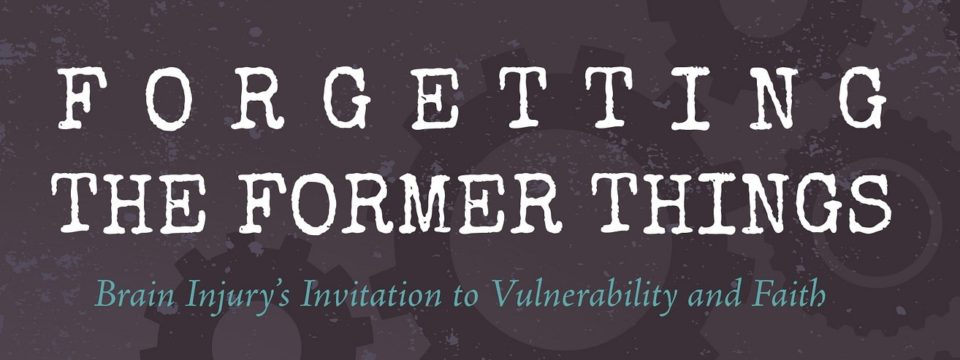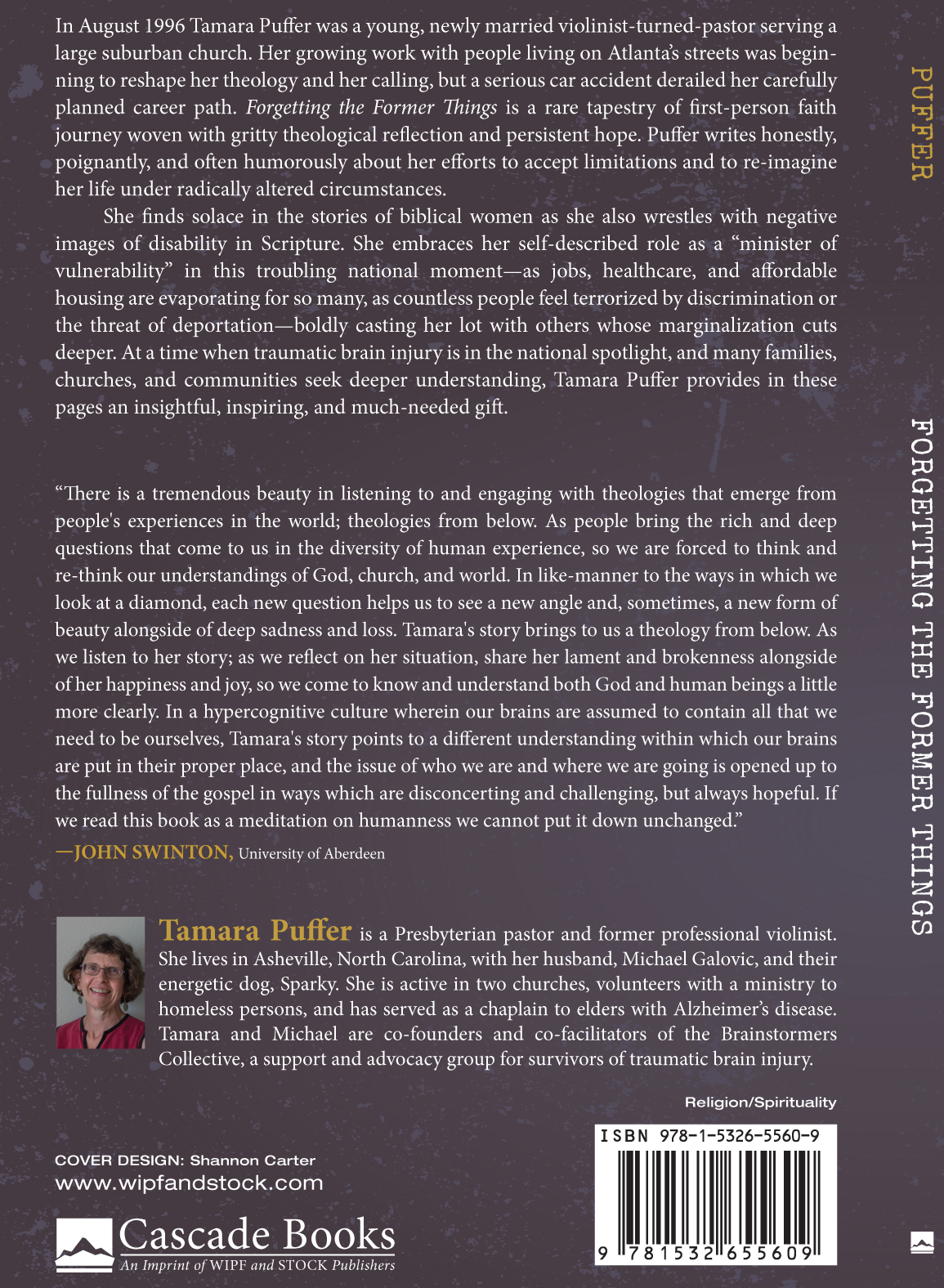Forgetting the Former Things:
Brain Injury’s Invitation to Vulnerability and Faith
By Tamara Puffer with Joyce Hollyday
In August 1996 Tamara Puffer was a young, newly married professional violinist turned Presbyterian pastor, serving a large suburban church. Her growing work with people living on Atlanta’s streets was beginning to reshape her calling, but a car accident derailed her carefully planned career path. Some weeks after awakening from a two-week induced coma, while relearning how to walk and speak and dress herself, Puffer realized that she wasn’t simply feeling called to ministry among the marginalized; she was the marginalized.

During her long rehabilitation, on nights when dread kept her from falling asleep, words from the 43rd chapter of Isaiah echoed through her mind: “Do not remember the former things…I am about to do a new thing.” The title Forgetting the Former Things is a double entendre that speaks of both the memory challenges that result from brain injury and the need to let go of what once was in order to be open to re-imagining one’s life; to embrace whatever “new thing” is on the horizon, not yet seen.
Brain injury and other cognitive disabilities have recently broken into the national spotlight because of the large number of veterans of the Iraq and Afghanistan wars injured by IEDs (improvised explosive devices), as well as the epidemic of Alzheimer’s disease and other forms of dementia among our elders. Yet brain injury remains largely misunderstood, and churches are often at a loss to know how to embrace persons with disabilities that cannot be addressed with an elevator or wheelchair ramp. Among the books written about theology and disability, few address brain injury, and those that do are written almost exclusively by researchers, observers, or caregivers.
Forgetting the Former Things, a rare tapestry of first-person faith journey woven with gritty theological reflection and enduring hope, fills a yawning cultural chasm. Puffer has created an invaluable gift for brain injury survivors, their families and allies, pastors and teachers, social workers and medical professionals—anyone desiring to deepen their understanding. She writes honestly, poignantly, and often humorously about her efforts to accept limitations, chart a new path, and find meaning in her radically altered life. Her persistent and painstaking journey includes attempts to tend a garden (overtaken by “devil’s grass”); to train a therapy dog (quarantined twice by Animal Control for aggressive biting); and to entertain nursing home residents as Raindrop the Clown (abandoned after she couldn’t scratch out even the simplest tune on her violin).
The book chronicles her four-year friendship with death-row inmate Terry Mincey, a brain injury survivor, teacher of resilience and courage, who was executed in October 2001. Puffer discovers solace in the stories of biblical women and preaches sermons in their voices. Embracing her self-described role as a “minister of vulnerability” in this moment when jobs, healthcare, and affordable housing are evaporating for so many, when countless people feel terrorized by discrimination or the threat of deportation, Puffer boldly stands in faith with others whose marginalization cuts deeper.
Rev. Bill Gaventa, director of the Summer Institute on Theology and Disability, writes in the foreword to Forgetting the Former Things: “[This] is not a book about triumph over trauma with the help of faith. Rather, it is about tenacity, about the power of faith to shape and be shaped by a long journey through a once-familiar landscape turned wilderness by the kind of event that could happen to anyone of us…I am tempted to share the gems and flashes of light in the book that all but took my breath away, but I will not; for you, the reader, will find your own…Like anyone who has the honor of listening to someone pour out their heart in a vulnerable place, you will walk away with gifts that can be used in your own search and struggle…This book is about all of us, and how we all have to pick up the pieces, literally or figuratively, at some point in our lives.”


